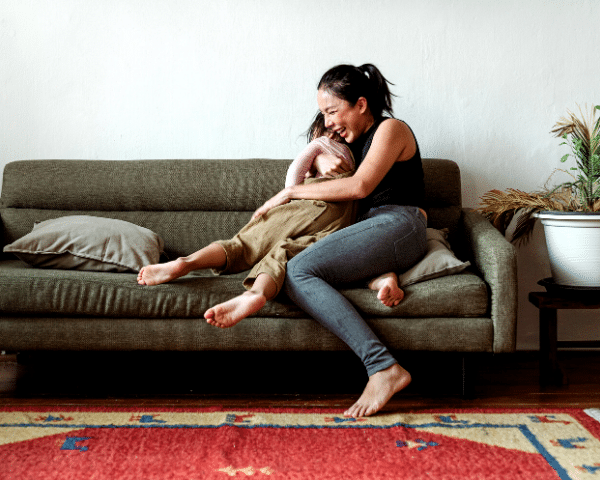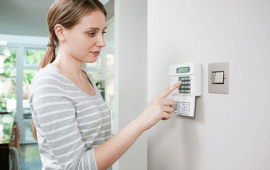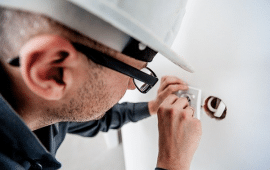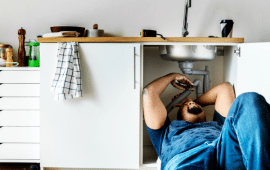
You may have stumbled upon the idea of disinfection using ultraviolet (UV) light. You probably have already purchased a UV wand or lamp to keep away from the COVID-19 virus and other germs. But do they actually work? Here’s what we found out.
Can UVC lamps inactivate the COVID-19 virus?
First, it’s helpful to know the different kinds of UV light. The sun produces the full-range of UV lights: UV-A, UV-B and UV-C. UV-A and UV-B hit the Earth’s surface and are known for causing sunburns. UV-C light, on the other hand, cannot penetrate our atmosphere, thanks to our ozone layer. UVC radiation has effectively been used for decades to reduce the spread of bacteria and virus by stopping their DNA and RNA from replicating. Direct contact of this light to humans can cause skin cancer and cataracts.
Studies have shown that UVC radiation destroys the outer protein coating of the SARS-Coronavirus, which is a different virus from the current SARS-CoV-2 virus. So does it help inactivate the COVID-19 virus? The short answer is MAYBE. UVC radiation may also be effective in inactivating the SARS-CoV-2 virus, which is the virus that causes the Coronavirus Disease 2019 (COVID-19). However, currently there is limited published data about the wavelength, dose, and duration of UVC radiation required to inactivate the SARS-CoV-2 virus.
In addition to understanding whether UVC radiation is effective at inactivating a particular virus, there are also limitations to how effective UVC radiation can be at inactivating viruses, generally.
- Direct exposure: UVC radiation can only inactivate a virus if the virus is directly exposed to the radiation. Therefore, the inactivation of viruses on surfaces may not be effective due to blocking of the UV radiation by soil, such as dust, or other contaminants such as bodily fluids.
- Dose and duration: Many of the UVC lamps sold for home use are of low dose, so it may take longer exposure to a given surface area to potentially provide effective inactivation of a bacteria or virus.
Is it safe to use a UVC lamp for disinfection purposes at home?
Consider both the risks of UVC lamps to people and objects and the risk of incomplete inactivation of virus.
Risks: UVC lamps used for disinfection purposes may pose potential health and safety risks depending on the UVC wavelength, dose, and duration of radiation exposure. The risk may increase if the unit is not installed properly or used by untrained individuals.
Direct exposure of skin and eyes to UVC radiation from some UVC lamps may cause painful eye injury and burn-like skin reactions. Never look directly at a UVC lamp source, even briefly. If you have experienced an injury associated with using a UVC lamp, we encourage you to report it to the FDA.
Some UVC lamps generate ozone. Ozone inhalation can be irritating to the airway.
UVC can degrade certain materials, such as plastic, polymers, and dyed textile.
Some UVC lamps contain mercury. Because mercury is toxic even in small amounts, extreme caution is needed in cleaning a lamp that has broken and in disposing of the lamp.
Effectiveness: The effectiveness of UVC lamps in inactivating the SARS-CoV-2 virus is unknown because there is limited published data about the wavelength, dose, and duration of UVC radiation required to inactivate the SARS-CoV-2 virus. It is important to recognize that, generally, UVC cannot inactivate a virus or bacterium if it is not directly exposed to UVC. In other words, the virus or bacterium will not be inactivated if it is covered by dust or soil, embedded in a porous surface or on the underside of a surface.
To learn more about a specific UVC lamp, you may want to:
- Ask the manufacturer about the product’s health and safety risks and about the availability of instructions for use/training information.
- Ask whether the product generates ozone.
- Ask what kind of material is compatible with UVC disinfection.
- Ask whether the lamp contains mercury. This information may be helpful if the lamp is damaged and you need to know how to clean up and/or dispose of the lamp.
Do you think UV lamps are worth it? If you are compelled to buy, good for you and make sure to follow the guidelines to use it effectively and safely. If you’re still not convinced, there are other ways to make your home clean and safe, here are household items that will work against the coronavirus — according to experts. We hope this helps you gain clarity in purchasing germicidal lamps. Stay safe and healthy! #WeAreInThisTogether
Source: FDA



